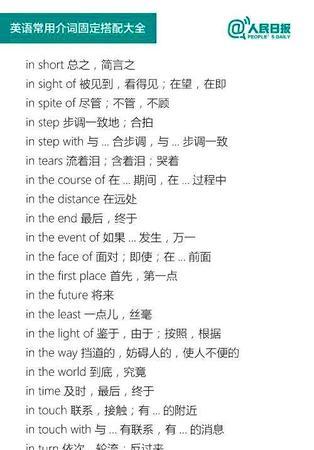英语中的动词“go”与介词的固定搭配包括“go to”(去某地)、“go for”(为某目的去)、“go on”(继续做某事)、“go with”(与……相配)和“go off”(响起、爆炸)。这些固定搭配的意思可能因语境而变化,学习它们可以提高语言表达能力。

- Go to
Go to是go最常见的介词短语之一,它的意思是“去某个地方”。例如:
- I need to go to the supermarket to buy some groceries.(我需要去超市购买一些食品杂货。)
- Tomorrow we are going to the beach to have a picnic.(明天我们要去海滩野餐。)
- Go for
Go for的意思是“去为了某个目的”,通常后面跟着名词。例如:
- I'm going for a run to get some exercise.(我要去跑步锻炼一下身体。)
- He went to the store to buy some snacks for the party.(他去商店买了一些小吃,为了晚会做准备。)
- Go on
Go on的意思是“继续做某事”。例如:
- We went on hiking even though the weather was bad.(尽管天气不好,我们还是继续徒步旅行。)
- After a short break, we went on studying.(休息了一会儿,我们继续学习了。)
- Go with
Go with的意思是“和……相配、相伴”。例如:
- This shirt goes well with your pants.(这件衬衫和你的裤子很搭配。)
- We decided to go with the blue curtains for the living room.(我们决定用蓝色的窗帘装饰客厅。)
- Go off
Go off的意思是“响起、爆炸”。例如:
- The alarm clock went off at 6 a.m.(闹钟在早上6点响了。)
- The bomb went off and caused a lot of damage.(炸弹爆炸了,造成了很大的破坏。)

